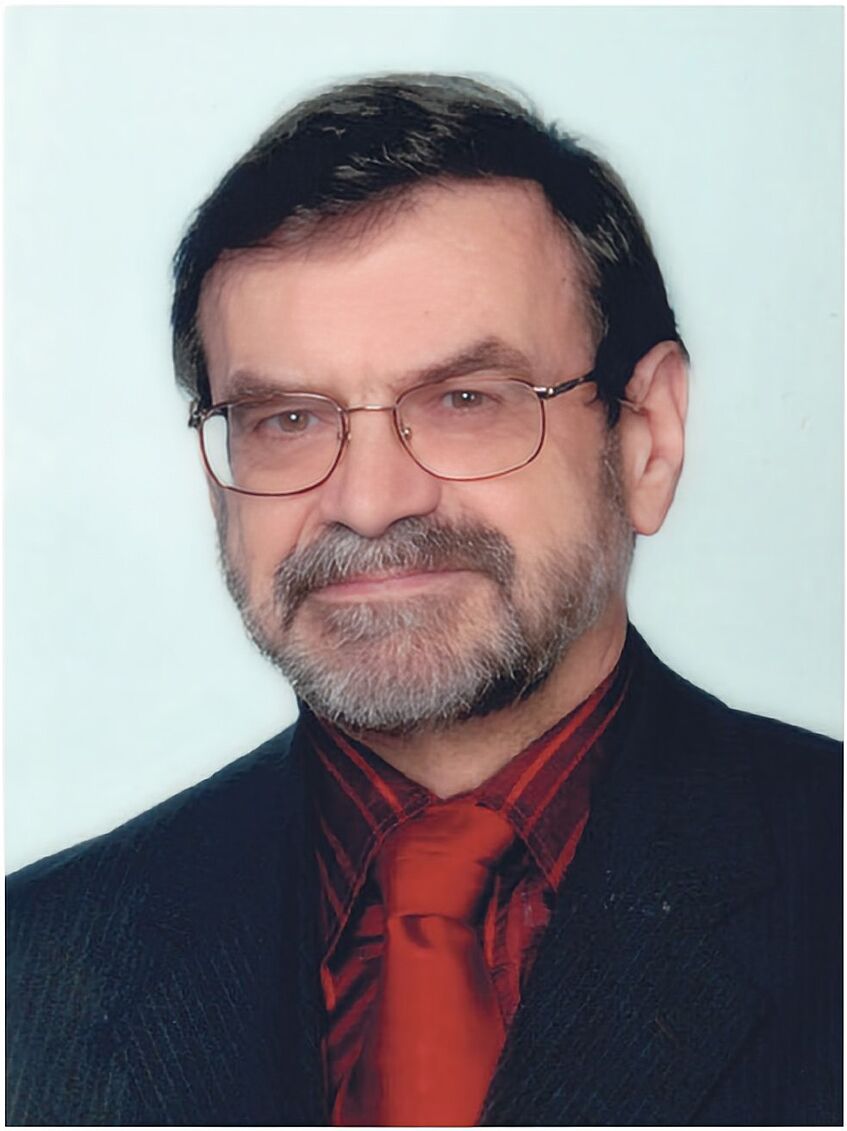
Nachruf Utz Podzeit
Nachruf Utz Podzeit
von Karin Preisendanz
On May 9, 2022, our colleague Utz Podzeit passed away after a protracted major illness, leaving behind his wife Mechthild Podzeit-Lütjen and their three children.
Born in Salzburg, Podzeit first studied music at the Mozarteum, with the oboe as his main instrument, but then moved to Vienna in 1965 in order to study Indology at the former Department of Indology at the University of Vienna, where he was employed as a part-time student assistant from 1969 onwards. Soon after he had completed his PhD thesis with the title “Die Einleitung der Kṛṣṇa-Legende in literar- und ideengeschichtlicher Sicht” in 1972, he was appointed to the position of Contractual Assistant, later on Academic Assistant and then University Assistant. In 1980, he was promoted to Senior University Assistant, but in 1984 changed his academic orientation and took up a position in the Departmental Library for Indology which was simultaneously turned into a Branch Library of the University Library. Even before this, Podzeit’s main agenda at the Department had been to take care of its rich library holdings. After a period of professional training in library, documentation and information services, Podzeit was fully entrusted with the administration of the ever-growing library. From 1991 onwards, he was also regularly teaching intermediate-level reading courses in Sanskrit, translation exercises from and into the Sanskrit, and courses on Indological research methodology at the Department. In spite of these manifold duties, he continued to conduct research, and in 1997 achieved his habilitation with a thesis on “Die Wandlungen Kṛṣṇas zum höchsten Gott. Philologische Studie zur Kṛṣṇa-Gopāla-Legende,” which was published earlier in the same year.
The central research interest of Podzeit was the history of Indian religion, especially the Kṛṣṇa story and its development reflected in Epic and Puranic literature, as is evident from his PhD and habilitation theses as well as his papers “Zum Konflikt zwischen Kaṃsa und Kṛṣṇa: Kaṃsas Befehle zum Kindermord in H.2,1,21 ff. und H.2,2,1 ff. (Wiener Zeitschrift für die Kunde Südasiens [WZKS] 17, 1973), “The Connection between Kaṃsa and Kālanemi: A Note on a Myth of the Purāṇic Kṛṣṇa-Story” (Annals of Oriental Research University of Madras. Silver Jubilee Volume 1975), “Der Pūtanāvadha in der purāṇischen Kṛṣṇa-Legende (published under the name Ulrich Kurz-Goldenstein) (WZKS 32, 1988), “A Philological Reconstruction of the Oldest Kṛṣṇa-Epic: Some Remarks in the Light of the Pralamba-Myth” (WZKS 36, 1992), “Bemerkungen zum ‘Sinn’ des Namens Vāsudeva” (Orbis Indicus = WZKS 38, 1994) and “Devakī, die Mutter des Kṛṣṇa” (WZKS 39, 1995). Beyond that, Podzeit was intensely interested, and also personally involved, in interreligious dialogue, hermeneutics of religion and philosophy of religion, as is documented already in 1982 in a booklet entitled “Duisternis uit het oosten. Goeroes, sekten en valse hoop als voorlopers van de antichrist,” the monograph “Seelenwanderung oder Wiedergeburt?” (1984) and the contribution “Begegnung im ‘sich-öffnend-dasein-für’: Die Sammlung De Nobili als Ort des dialogischen Gesprächs,” which was published in 1994 as an appendix to the association’s felicitation volume for Gerhard Oberhammer at the occasion of his 65th birthday (Hermeneutics of Encounter. Publications of the De Nobili Research Library 20). In this appendix, Podzeit provides details on, and short characterizations of, the first three interdisciplinary symposia organized by the association in Vienna (1973, 1977, 1981; see Publications of the De Nobili Research Library 2, 5 and 9), a symposium with Indian theologians held in Pune (1976), and two follow-up symposia in Vienna (1988, 1992) which were organized jointly with the Austrian Academy of Sciences (see Symposia and Related Symposia). Podzeit was also the editor of the monumental “Gerhard Oberhammer: Ausgewählte Kleine Schriften” published by the association in 2007 (Publications of the De Nobili Research Library 33). Podzeit’s special interest in the dialogue with Judaism is expressed in his monograph “Die Freude an der Tora als Weisung des Weges zum Vater. Auslegungen der Rabbinen und des Aurelius Augustinus zu Psalm 1” (2009) and the contribution “‘Pfuy, schämt euch, ihr Juden!’ Der Prediger Abraham a Sancta Clara und die Juden” to the journal Dialog – DuSiach (81, 2010), published by the Koordinationsausschuss für jüdisch–christliche Zusammenarbeit, Vienna.
Furthermore, as the final assignment required to complete his training as librarian, Podzeit produced a descriptive catalogue of the Indian manuscripts preserved at the University Library of the University of Vienna (“Die indischen Handschriften an der Universitätsbibliothek Wien,” 1988).
As a member of the founding executive board of the association, Podzeit served as its secretary from 1989 to 2014, and from 2014 to 2016 as its deputy secretary, until his ailments forced him to retire from this function. From 2002 to 2016, he was also co-editor of the Publications of the De Nobili Research Library.
Podzeit will be remembered as a true stalwart of the association.
For some personal aspects, we refer to the death notice sent out by his family.
